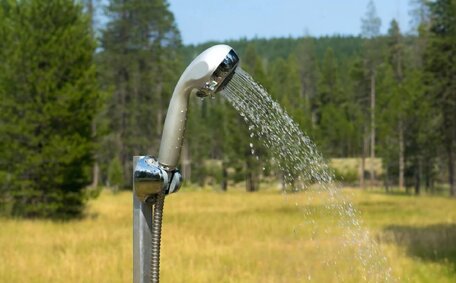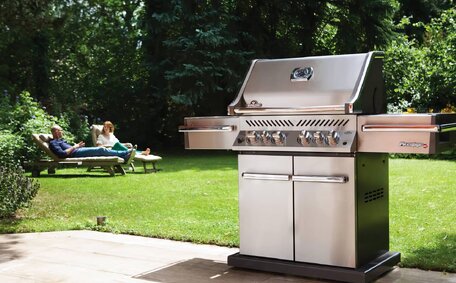Introduction to Hot Water Systems
Reliable hot water is essential for every home. The failure or inefficiency of your hot water system can lead to significant disruptions and cost, as different types cater to various needs. Choosing the right hot water system, from the multiple options available, to match your needs and budget can be daunting.
At Peakhurst Plumbing, we specialise in supplying and maintaining an array of types water heaters, each tailored to meet our customers’ individual needs. With decades of experience under our belts, we know all the ins and outs of the various electric, gas, solar, heat pump and tankless water heating systems.
This article will outline various hot water systems and the critical considerations for effectively evaluating your options. Considering the advantages and drawbacks of each system, including fuel type, costs, efficiency, and output, will help you make an informed decision for your home.
As your local hot water experts, we will guide you through the entire selection and installation process. Whether you’re in the market for a new hot water system or looking to improve your existing one, Peakhurst Plumbing offers expert assistance.
Types of Hot Water Systems
Electric Storage Hot Water Systems
Electric storage water heaters are among the most prevalent in Australian households. They consist of an insulated tank that holds a set volume of water heated by the electric water heater’s elements. New water storage tank capacities typically range from 120 to 400 litres to meet a household’s daily usage.
Gas Storage Hot Water Systems
Gas hot water systems not only utilise a tank but also employ a gas burner, making these systems uniquely efficient in contrast to electric models. Hot water systems using gas heat are generally more energy efficient than other types but require connection to a natural gas supply.
Instantaneous/Tankless Systems
As the name suggests, Continuous flow hot water systems (also called instantaneous or tankless) provide water heating on demand without the need for a storage tank. They heat water on demand, providing continuous flow hot water as soon as a tap is turned on, which is ideal for busy households, though they may struggle to meet high demands.
Solar Hot Water
Solar hot water systems harness free energy from the sun to supply your water needs with hot pre-heated water throughout the daylight hours, highlighting their status as an eco-friendly heating solution. This pre-heated water is then stored in a tank, ready for immediate use, which is a fundamental function of solar water heaters. Boosted solar hot water systems may require a gas solar backup boosting during cloudier weather but can still lead to significant cost savings.
Heat Pump
Heat pump water heaters, a specialised type of electric heat pump, excel by harnessing latent heat from the ambient air for water heating. Considered among the most energy efficient hot water options, heat pumps work best in warmer climates but can still operate on cold days.
When choosing from the hot water systems available for your home, it’s important to consider factors including the available energy source, climate, household water needs, and installation costs. The skilled team at Peakhurst Plumbing can assess your situation and recommend the ideal water system to ensure a consistent and efficient water supply for your home’s unique requirements.
Electric Hot Water Systems
Electric storage systems play a crucial role in ensuring a dependable hot water supply and are highly popular in Australian households. They consist of an insulated storage tank that holds 120-400 litres of water, warmed through the application of electric heat via internal heating elements.
Electric storage systems are favoured for their affordability and straightforward installation. They simply need connection to the mains power supply, avoiding the need for gas lines or solar infrastructure. This simplicity contributes to their popularity among homeowners.
However, electric hot water systems can incur higher running costs over time, particularly in households with substantial hot water usage. The electricity tariff also impacts bills, with higher 'peak’ rates applying at popular water heating times.
Upfront system costs are low to moderate, but the combined effects of potentially extensive energy use and expensive quarterly bills may mean you pay more in the long run.
Overall, standard electric hot water systems are an affordable and low-maintenance option for small to medium households. But high operating expenses down the track make them less cost-effective for bigger families or homes with high demand. This is where alternatives like gas, solar or heat pump systems may save money.
The team at Peakhurst Plumbing have the expertise to advise whether a type hot water system like electric is right for your situation. We can also provide solutions to boost system your efficiency and cut costs If you already have an electric hot water service installed.
Gas Hot Water Systems
Gas storage hot water systems utilise an insulated storage tank paired with a gas burner to heat water. Natural gas fuels the burner, offering a dependable supply from tank water heaters, heated to comfort around the clock.
Systems that combine gas electric elements ensure heated water availability faster than standard electric alternatives. Their quick recovery rate allows for simultaneous hot water supply to several taps, making them suitable for larger households.
Gas systems typically have lower operating costs and can efficiently supply both hot water and space heating. And by scheduling heating to off-peak times, savings can be further improved.
Drawbacks include the need for a natural gas connection, professional installation, and regular servicing for safety. Upfront costs are higher too.
Peakhurst Plumbing can help you discover how very energy efficient type hot water is achievable with modern gas systems. Just be sure your usage levels justify the initial investment. And for ongoing value, choose a reputable gas fitting specialist like Peakhurst Plumbing to handle the install and maintenance.
Solar Hot Water Systems
Solar water heating systems are an eco-friendly, renewable solution that uses solar energy to heat water. They work by using solar panels along with a tank compressor system to pre-heat water, which is then conserved in an insulated tank ready for use.
Solar heat pumps are energy-efficient and can lead to considerable electricity cost savings. But the large upfront cost of purchasing and installing the solar panels and storage tank is a key consideration in the search for the hot water system best suited to your needs.
Solar hot water systems capitalise on the energy sun-drenched environments provide, performing best under those conditions. Hence, they’re more appropriate for sunnier regions like northern Australia and parts of Queensland, compared to the cooler, less sunny southern areas.
For appropriate households, solar hot water systems represent a green investment with long-term payoffs in lower energy use and reduced greenhouse gas emissions.
Factors like climate, roof space for the panels, household hot water demand and ability to afford the initial investment need consideration when weighing up this option.
The team at Peakhurst Plumbing are solar specialists who can provide advice tailored to your situation. We manage everything from sizing assessments to full supply, installation, repairs, and maintenance.
Heat Pump Hot Water Systems
Heat pump hot water systems are considered among the most energy efficient options currently available. Heat pump water systems work by extracting latent heat from ambient air and using this to heat water stored in an insulated tank.
Heat pumps can generate the same amount of hot water as standard electric storage heaters using around 60% less energy. This substantial efficiency lead makes heat pumps ideal for eco-conscious households aiming to save on energy bills.
Ongoing running costs are competitive thanks to the reduced energy requirements and ability to schedule water heating to off-peak electricity rates. And while heat pumps tend to cost more upfront, the expense is recouped over time through lower usage charges.
Heat pump storage water heaters perform well even in cooler climates but work best in warmer conditions. Positioning is also important – external units require adequate airflow and protection from wind and rain.
As heat pump technology continues to improve, running costs and environmental credentials make this a standout choice for energy-efficient hot water production into the future.
Tankless Water Heaters
Tankless water heaters, operating more efficiently than conventional units, provide hot water on demand without the need for a storage tank. Unlike conventional systems, Rather than storing warm water, cold water is directly heated as it travels through the unit to the taps only as needed.
Tankless systems, using gas or electricity, heat water on demand. This on demand delivery means you’ll never run out hot water – perfect for larger homes and the luxury of long, uninterrupted showers!
Tankless heaters are compact and space-saving, providing instant hot water without requiring a large storage tank. Their exceptional energy efficiency is another plus, using less power by eliminating standby heating losses.
Upfront costs are higher for tankless systems but the long lifespan of 15-20 years compares favourably to the 8-12 year average for tank-based units. Ongoing costs are lower too.
For a convenient, eco-friendly hot water heater system that delivers endless hot water, our Peakhurst Plumbing team has the experience to manage everything from initial recommendations to professional installation.
Choosing the Right Hot Water System
With a plethora of hot water systems available, it can be challenging to select the one best suited to your household needs.
Important factors to consider are:
- Family size – Systems like tankless and heat pumps handle high demand better for bigger families. Gas outperforms electric for multiple showers at once.
- Climate – Solar works best in sunnier northern regions. Heat pumps run more efficiently in warmer weather.
- Energy sources – Solar needs good roof space while gas requires a mains connection.
- Costs – Consider running expenses as well as upfront price. More energy-efficient systems cost more initially but save longer-term.
Striking a balance between highest performance and value for money entails a candid analysis to discern the best hot water solution tailored for your household’s requirements.
The Peakhurst Plumbing team provides unbiased advice to help you find a cost-effective, energy-efficient hot water solution tailored to your needs. We invest time to fully comprehend your requirements prior to endorsing the best hot water system tailored to fulfill them.
Whether you’re installing a new hot water unit or upgrading an existing one, Peakhurst Plumbing has the experience to guide you through the process from start to finish. Call us or email to arrange an obligation-free on-site consult.





